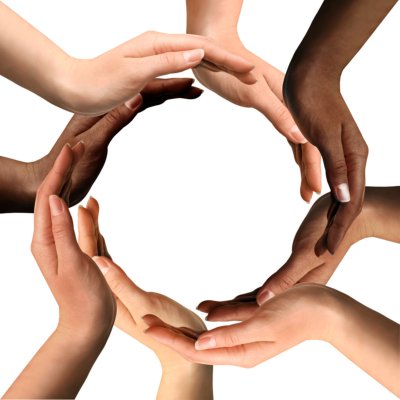Becoming a High-Performance Team Series
A High-Impact Team Building Training Event!
Designed for the entire team, this series of four ½-day workshops will get your team on track with high-performance team skills and improved team results.
The four workshops include:
- Workshop I: What is a Team and How Do I Fit In
- Workshop II: Communicating as a Team
- Workshop III: Developing a Winning Team
- Workshop IV: Keeping the Team on Track
These workshops are high-impact team development events! The workshops will challenge your team's current perceptions of performance limits, engage team members in the development of their individual contributions and enhance the entire team development process.
|
Team Training for team members and their team leader in:
This training enables team members to identify behaviors and actions that enhance or inhibit team performance. The team then initiates a critical change process by identifying alternative, more productive actions and behaviors. The result is a team that is more focused, more effective and more powerful! |
The entire staff will recognize that a team is more than a group of people working in close proximity.
|
We designed these workshops because too often:
- Team leaders often go through team building courses, but team members rarely get training on how to function as an effective team
- Team members are expected to automatically gel and provide measurable results
- Teams struggle with interpersonal conflict
- Teams experience communication difficulties
- Teams lack a clear sense of purpose as a unit
- Teams lack a set of agreed-upon standards of operation to maximize effectiveness
For each workshop in this series, the emphasis is determined by your specific team needs and situation. Whether your team is a new team just getting started, an existing team that needs to be re-energized, or a dysfunctional team that needs to be refocused, this program will be tailored to the team’s needs.
Your team will leave this program better equipped for effective communication, have the ability to focus on future performance goals, share common values and aspirations and understand the required contribution of all team members.
Every organization has its own culture, each team is at a particular stage in its life, and each team member has a unique relationship within the team.
We adapt each session to provide appropriate emphasis and focus to challenge the team appropriately for your training objectives and preferences. A pre-workshop assessment will pinpoint the areas that need work and allow us to customize a skill-based, interactive training program for your team.
Overview of Concepts and Deliverables Provided:
- Develop a better understanding of self and other team members
- Recognize and better utilize the strength of all personal styles
- Develop new skills for better team interaction
- Develop new strategies for team standard operating procedures
- Develop new team communication skills
- Evaluation of complementary skill sets and gaps in the team’s skill sets and role assignments
- Creation or refinement of a conflict resolution process for the team
- Practice in how to use style diversity to be more innovative in business solutions
- Develop team problem solving skills
- Set and achieve high-performance team goals
- Improvement of team assessment processes
- Transform the staff individual efforts into a true team approach
The “Becoming a High-Performance Team Series” is designed using four individual workshops. Feedback with the instructor after each session allows for adjustments and clarifications for the next workshop session. Special guidance is given to the team manager to reinforce workshop learning objectives between each session.
Using experiential exercises and activities, we build the team’s ability to:
- Identify and focus on achieving a common goal
- Share and clarify objectives
- Collectively plan and organize resources
- Effectively communicate
- Balance challenge and support
Workshop I: What is a Team and How Do I Fit In
- A team is more than just a work group—a collection of individuals who work together. In a work group, each member is directed by and reports to a common manager or supervisor, but members don't necessarily collaborate with each other to complete their tasks.
- A team, by contrast, comprises individuals with complementary skills and individual styles that must work together to achieve a shared purpose. The team members must interact with each other, and with the team leader, to achieve their shared goals.
- The challenge for most teams is to utilize the team’s blend of individual styles to maximize its potential for success. This requires that individual team members understand themselves and how to best work with the styles of others on the team.
- In this session, we will utilize the DISC Survey to improve interpersonal and team effectiveness. The survey provides insights on communication styles, work styles and likely sources of frustration when interacting with others. Participants also become aware of the value of all styles. Such insights enable participants to recognize why some interpersonal and group interactions are more rewarding than others. Participants will discover how to use these insights to identify the style of others. They will learn how and when to modify their own style to reduce conflict and improve overall interpersonal and team effectiveness.
Topics:
- What is a Team?
- Work groups versus teams
- Steps to Becoming Effective Teams
- Steps in brief
- Personal Insight in Teamwork
- What is your style
- DISC Personal Style Indicator
- Understanding your style
- Recognizing the value of all styles
- Recognizing the style of others
- Adjusting your style – How and When
Workshop II: Communicating as a Team
To benefit from diverse thinking styles and backgrounds, team members must listen to each other, be open to different perspectives and be willing to objectively question their own beliefs. In this session, team members will learn how to encourage open dialogue and ensure that everyone’s input should be valued. They will discover new ways to accommodate differences in opinion and share their ideas in a positive manner. They will recognize the value of differing opinions and learn how to overcome conflict that can become detrimental to the team’s success.
Topics:
- Promoting Better Team Communication
- Poor communication is destructive
- Personal Insight: Keeping peace between people
- Focus on behavior, not character
- Focus people's attention on team goals
- Resolving Team Conflicts
- The four steps to resolving conflicts
- Define the root cause of the conflict
- Negotiate a resolution
- Activity: Help Jared listen actively
- Remind team members to forgive
Workshop III: Developing a Winning Team
Group norms (the behaviors that individuals expect or accept from each other) play a large role in how your group works together. The pre-existing "group" has already established some group norms. Some individuals talk more than others, some have taken the role of informal leaders and some are recognized as having more technical expertise or seniority. These factors, and others, combine to create a group dynamic that will have a positive or negative impact on the team’s success. In this session, the team will work together to establish effective processes that will make for a positive team dynamic and keep the team on track to achieve goals and make better decisions.
Topics:
- Keeping your team on target
- Understanding how teams get derailed
- Behave like a team player
- Share what you know
- Fostering better team identity
- Why is team identity important?
- How might you foster team identity?
- Evaluate the team process
- Setting team goals
- Ensuring goal achievement
- Meeting individual expectations
- Identify obstacles that stand in the way of team progress
- How is your team doing?
- How can we improve?
- Make Decisions as a Team
- Recognize when your team is stuck
- Develop a team decision-making approach
Workshop IV: Keeping the Team on Track
Maintaining a high-performance team effort is not automatic. Each member must support the team's priorities, yet realize a sense of personal satisfaction and growth from his or her contributions to the team effort. Team members must also learn how to collectively adapt to changing circumstances and demands. Developing this flexibility results in improved team commitment, more focused direction, greater creativity and a more sustainable high-performance team culture.
Topics:
- Encouraging Team Participation
- Commit to the group
- Confirm team member expectations
- Make it easier to meet expectations
- Keeping team meetings on track
- Fostering Creativity in Your Team
- The importance of creativity
- Promote diversity of styles and skills
- Balance the paradoxical characteristics of your team
- Manage divergent and convergent thinking
- From divergent to convergent
- Helping Your Team Avoid "Groupthink"
- What is "groupthink"? and Why is groupthink dangerous?
- Recognize the symptoms of groupthink
- How to combat groupthink
- Sustaining a High-Performance Culture
- Team Action Plan
- Individual Action Plan
Building top performing teams is challenging for most managers and supervisors. Training the entire team creates learning opportunities for individual team members and the team leader to develop new skills and new perspective to maximize team efforts at all levels.
To find out more about how you can bring this training to your organization, call toll free: 877-385-5515
Additional seminars on workplace generations and their impact on the workplace include: Working in a Cross-Generational Team and Bridging the Communication Gap between Generations at Work.


